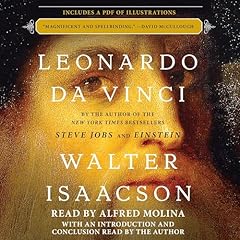
The Polymath
Unlocking the Power of Human Versatility
No se pudo agregar al carrito
Add to Cart failed.
Error al Agregar a Lista de Deseos.
Error al eliminar de la lista de deseos.
Error al añadir a tu biblioteca
Error al seguir el podcast
Error al dejar de seguir el podcast
 Exclusivo para miembros Prime: ¿Nuevo en Audible? Obtén 2 audiolibros gratis con tu prueba.
Exclusivo para miembros Prime: ¿Nuevo en Audible? Obtén 2 audiolibros gratis con tu prueba.Compra ahora por $21.94
-
Narrado por:
-
Waqas Ahmed
-
De:
-
Waqas Ahmed
Every human is born with multifarious potential. Why, then, do parents, schools, and employers insist that we restrict our many talents and interests - that we "specialize" in just one?
We've been sold a myth, that to "specialize" is the only way to pursue truth, identity, or even a livelihood. Yet specialization is nothing but an outdated system that fosters ignorance, exploitation, and disillusionment and thwarts creativity, opportunity, and progress.
Following a series of exchanges with the world's greatest historians, futurists, philosophers, and scientists, Waqas Ahmed has weaved together a narrative of history and a vision for the future that seeks to disrupt this prevailing system of unwarranted "hyper-specialization".
In The Polymath, Waqas shows us that there is another way of thinking and being. Through an approach that is both philosophical and practical, he sets out a cognitive journey towards reclaiming your innate polymathic state. Going further, he proposes nothing less than a cultural revolution in our education and professional structures, whereby everyone is encouraged to express themselves in multiple ways and fulfill their many-sided potential.
©2018 Waqas Ahmed (P)2019 Gildan MediaLos oyentes también disfrutaron:




















Las personas que vieron esto también vieron:




Must Read!
Se ha producido un error. Vuelve a intentarlo dentro de unos minutos.
This book is worth listening to!
Se ha producido un error. Vuelve a intentarlo dentro de unos minutos.
Mastermind dictionary with feminism to be bought
Se ha producido un error. Vuelve a intentarlo dentro de unos minutos.
painful narration
Se ha producido un error. Vuelve a intentarlo dentro de unos minutos.


